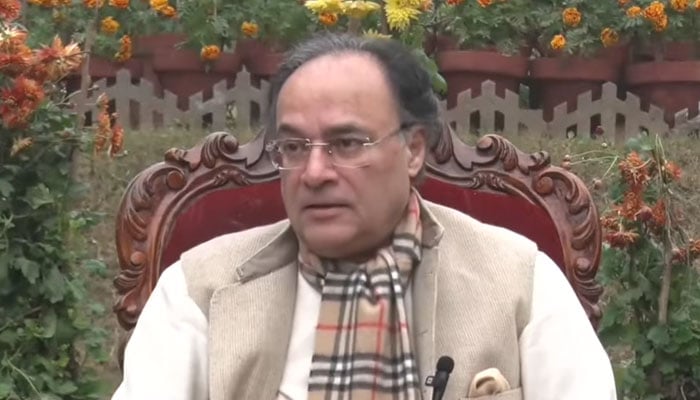
- Lower interest rates to boost economic growth by 2025.
- Private sector involvement proposed for loss-making institutions.
- The minister promises tax reform and commits to fighting tax evasion.
Finance Minister Muhammad Aurangzeb has urged all stakeholders to reach consensus on key issues, including the ‘charter of economy’, to bring lasting economic stability to the country.
Senator Aurangzeb reiterated that although challenges are numerous, economic reforms require collective efforts. “We are taking suggestions from all stakeholders for economic reforms. We must move towards lasting economic stability. “Let us unite for the good of the country on three or four key issues, including the Economy Charter. “
His statement comes as the opposition PTI and the coalition government formally launched negotiations aimed at lowering the political temperature in the country earlier this month, with the second round of negotiations scheduled for January 2.
A day earlier, Prime Minister’s Advisor on Political Affairs Rana Sanaullah stressed the need for dialogue among the country’s political bigwigs, saying it would be better if Nawaz Sharif, Imran Khan and Asif Ali Zardari sit down together to resolve problems, because negotiations are the best solution. only solution to the current political crisis.
Addressing the media in Punjab’s Kamalia town today, the Finance Minister called for self-reliant progress rather than dependence on external aid. “We have progressed through our own efforts, without relying on anyone,” he said, highlighting the government’s focus on sustainable development. “In 2025, our goal is to bring the national economy to further improvements,” he said.
The minister stressed the importance of reducing interest rates to stimulate economic growth. “If interest rates fall, we will be heading towards improvement,” he noted. Acknowledging ongoing challenges, he said: “There is no magic wand to fix everything instantly. We must move towards sustainable economic stability,” and called on all stakeholders to come together for the progress of the nation.
The finance czar emphasized inclusiveness in decision-making, pledging to seek public input. “We will not stand idly by during the Islamabad trial. We will go to the people to take their suggestions,” he said, criticizing the conventional approach of policymakers staying in the capital only during budget discussions .
The finance minister said he had visited several cities over the past two to three weeks, to personally seek the views of traders. “A country cannot run on charity. Charity can support educational institutions and hospitals, but not a nation.
Aurangzeb highlighted the growth potential of agriculture and information technology, seeing these sectors as critical to national development. “Agriculture and IT are in our hands, we can develop them,” he said. He also proposed involving the private sector to revitalize loss-making institutions, saying: “Institutions operating at a loss should be closed or transferred to the private sector.”
Recognizing the flaws in the tax system, the minister pledged to fight tax evasion and broaden the tax base. “Everyone will have to pay taxes,” he said, adding: “People say our tax system is corrupt, and we admit that.”
“Our effort is to avoid additional burdens for taxpayers,” he added.
